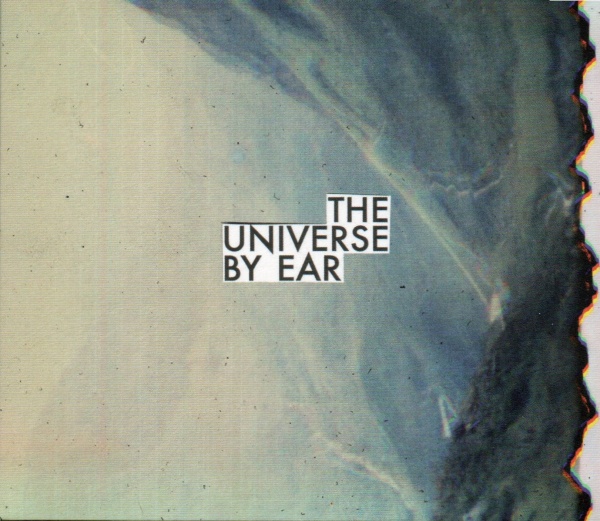
[SIR2230]
CD & Mediabook
SHOP
|
UEBERSCHAER - Flow Of Time
UEBERSCHAERs „Flow Of Time“ ist ein klassisches Progressive Rock
Konzeptalbum! In den Songs verschmelzen typische Elemente des
Progressive Rock mit Einflüssen aus Pop, Jazz und Klassik. UEBERSCHAERs
Bariton und seine Kompositionen werden dabei von Orgel, Rhodes,
Klavier, Doepfer Modular, Moog, Streicher-, Orchester und Chorsounds,
Synthesizern, akustischen und verzerrten Gitarren, Bass, Perkussion und
Drums in ausgefeilten harmonisch und melodisch abwechslungsreichen
Arrangements in Szene gesetzt. Rhythmisch haben wir es neben üblichen
Taktformen wie 4/4, 6/8 und 3/4 mit typischen „proggy“ Taktformen zu
tun (5/8, 5/4, 7/4 und mehr) sowie mit überraschenden Breaks und
Taktwechseln.
Die Macher: Namensgeber, Komponist und Co-produzent des Projektes
UEBERSCHAER ist der Sänger Heiko Ueberschaer. Ermöglicht wurde das
Album durch den Gitarristen Axel Köhnken, der neben seinem
Gitarrenspiel die Rolle des Mixing Engineers und Produzenten
eingenommen hat.
Die Musiker: Adam Holzman (Miles Davis, Steven Wilson) – Diverse Keys
Lars Lehmann (UFO, Simon Phillips, Jimmy Keegan, Vinnie Moore, Uli Jon
Roth) - Bass Kristof Hinz (Till Brönner, Mousse T, Marla Glen) – Drums
& Percussion Gastmusiker: Martin Schnella – Akustik Gitarre Lennart
Hinz – Keys Rainald Menges – Keys
Die Story: Erzählt wird die Geschichte eines Paares aus der Perspektive
des Mannes. Dabei ist das Album nicht ausschließlich chronologisch
aufgebaut, sondern es wird mit Zeitsprüngen gearbeitet. Die Texte sind
zum Teil konkret und zum Teil metaphorisch angelegt. Der erste
Abschnitt – Heaven’s Gate – findet in der Gegenwart statt. Wir befinden
uns auf einer Trauerfeier („Memorial“), auf der der überlebende
Protagonist an die Verstorbene zurückdenkt und die Hörer einen Einblick
in ihren Charakter bekommen („Wanderlust“). In „Neverland“ erinnert er
sich an die beste Zeit der Beziehung bis zu dem Zeitpunkt als alles
anders wurde. Der zweite Abschnitt findet vollständig in der
Vergangenheit statt, wird aber hauptsächlich im Präsens erzählt. Zu
Beginn der Beziehung geht es um Inniges Zusammensein, um Zweisamkeit
und mehr („Togetherness“). Wie immer in Beziehungen zwischen Menschen
greifen auch Ängste Raum („Nightmare“) und entstehen Gefühle wie
Abhängigkeit („Addiction“). Als diese belastenden Gefühle stärker als
die Anziehung werden, entstehen Misstrauen und Streit, es folgt
Trennung und das Wegmachen von Gefühlen mittels Drogen. („Halloween“).
Es kommt dann zu einem verhängnisvollen Ereignis („Crime“), bei der die
Partnerin des Protagonisten schwer verletzt wird und ins Koma fällt
(„Dreamer“). Leider überlebt sie nicht und der Protagonist bleibt
verzweifelt zurück („Despair“). Der letzte Abschnitt findet zeitlich
nach der anfänglichen Trauerfeier statt, also perspektivisch in der
Zukunft. Der Protagonist gerät in tiefe Trauer und Wut über sein
Schicksal, die in Phantasien sich selbst oder anderen etwas anzutun
übergeht. Doch am Ende entscheidet er sich mit dem, was passiert ist,
weiter zu leben. („Metamorphosis“). Zum Ende der Geschichte erleben wir
einen gealterten Protagonisten, der noch einmal in Gedanken an seine
alte Liebe denkt bevor er selbst durch seinen Tod erlöst wird. („Me And
You In The Rain“) UEBERSCHAER: „Als die Idee entstand im Rahmen eines
Progressive Rock Albums eine Liebesgeschichte mit Höhepunkten und
Abgründen zu erzählen, waren meine beiden Eltern noch am Leben. Die im
Album erzählte Geschichte ist zwar rein fiktiv, dennoch hat das Ableben
beider Eltern in den letzten Jahren doch eine persönlichere und
emotionalere Note in die Umsetzung des Albums gebracht, besonders weil
es in der Geschichte auch um zwei Todesfälle geht.“ Über die Zeit
(Jean-Luc Picard – Star Trek – Treffen der Generationen): "Jemand hat
mir mal gesagt, die Zeit würde uns wie ein Raubtier ein Leben lang
verfolgen. Ich möchte viel lieber glauben, dass die Zeit unser Gefährte
ist, der uns auf unserer Reise begleitet und uns daran erinnert jeden
Moment zu genießen, denn er wird nicht wiederkommen.
UEBERSCHAER's "Flow Of Time" is a progressive rock concept album with 12 songs and a playing time of 71:24.
The songs blend typical
elements of progressive rock with influences from pop, jazz and
classical music. UEBERSCHAER's baritone and his compositions are
accompanied by organ, Rhodes, piano, Doepfer Modular, Moog, string,
orchestra and choir sounds, synthesizers, acoustic and distorted
guitars, bass, percussion and drums in sophisticated harmonically and
melodically varied arrangements. Rhythmically, we are dealing with
typical "proggy" time signatures (5/8, 5/4, 7/4 and more) as well as
surprising breaks and time signature changes, in addition to common
time signatures such as 4/4, 6/8 and 3/4.
The makers:
Eponym, composer and
co-producer of the project UEBERSCHAER is the singer Heiko Ueberschaer.
The album was made possible by guitarist Axel Köhnken, who in addition
to his guitar playing has taken on the role of mixing engineer and
producer.
The musicians:
Adam Holzman (Miles Davis, Steven Wilson) - Diverse Keys
Lars Lehmann (UFO, Simon Phillips, Jimmy Keegan, Vinnie Moore, Uli Jon Roth) - Bass
Kristof Hinz (Till Brönner, Mousse T, Marla Glen) - Drums & Percussion
Guest musicians:
Martin Schnella - acoustic guitar
Lennart Hinz - Keys
Rainald Menges - Keys
Mastering: Friedemann Tischmeyer
Artwork: Tom Ohlrogge
The Story:
The story of a couple is
told from the perspective of the man. The album is not exclusively
chronological, but works with time jumps.
The lyrics are partly
concrete and partly metaphorical. The first section - Heaven's Gate -
takes place in the present. We are at a funeral service ("Memorial"),
where the surviving protagonist thinks back to the deceased and the
listeners get a glimpse of her character ("Wanderlust"). In "Neverland"
he remembers the best time of the relationship until the moment when
everything changed.
The second section takes
place entirely in the past, but is told mainly in the present tense. At
the beginning of the relationship it is about intimacy, togetherness
and more ("Togetherness"). As always in relationships between people,
fears take hold ("Nightmare") and feelings of dependence ("Addiction")
arise. When these stressful feelings become stronger than the
attraction, distrust and quarrels arise, separation follows and
feelings are made to go away by means of drugs. ("Halloween"). A
fateful event then occurs ("Crime") in which the protagonist's partner
is seriously injured and falls into a coma ("Dreamer"). Unfortunately,
she does not survive and the protagonist is left in despair
("Despair"). The final section takes place chronologically after the
initial funeral service, so in perspective, in the future. The
protagonist falls into deep grief and anger over his fate, which turns
into fantasies of harming himself or
others. But in the end he
decides to live on with what has happened. ("Metamorphosis"). Towards
the end of the story, we witness an aged protagonist who once again
thinks of his old love in his mind before he himself is redeemed by his
death. ("Me And You In The Rain")
UEBERSCHAER: "When the
idea was born to tell a love story with climaxes and abysses within the
framework of a progressive rock album, both my parents were still
alive. The story told in the album is purely fictional, yet the passing
of both parents in recent years did bring a more personal and emotional
touch to the realization of the album, especially because the story is
also about two deaths." About Time (Jean-Luc Picard - Star Trek -
Meeting of the Generations): „Someone once told me that time was a
predator that stalked us all our lives. But I rather believe than time
is a companion who goes with us on the journey, and reminds us to
cherish every moment because they'll never come again
|

[CD: SIR2197 / LP: SIR4055]
CD / LP *** Ausverkauft / Sold out *** |
THE UNIVERSE BY EAR "The Universe By Ear" 
"It could have started with a knock
on the door, a letter on the table or some blood on the floor" – So
lautet die eröffnende Textzeile des zweiten selbst-betitelten Albums
von The Universe By Ear . Und wahrlich: Es gibt endlos viele
Möglichkeiten, ein Nachfolgewerk auf ein von der Kritik viel beachtetes
Debüt (2017) zu beginnen. The Universe By Ear wählen die Offensive und
legen einen gebündelten Garage-Rocker mit einem ordentlichen Schuss
Sixties-Psychedelik vor. "Been Here Before" heisst das Lied, und der
Titel täuscht darüber hinweg, dass sich das Powertrio hier in neue
Gefilde vor wagt.
Natürlich leben The Universe By Ear
auch auf dem Zweitling ihre Liebe zum instrumentellen Freifall durch
den Musikkosmos aus, den sie "psychedelic brain blues" nennen. Doch
weil auch die bewusste Grenzbeschreitung letztlich eine Einschränkung
sein kann, servieren Grünenfelder, Strittmatter und Bürgin mit
"Temperamental Apathy" einen Pop-Hook, mit "Bad Boy Boogie" einen
Bluesrockknaller und mit "Sand And Dust" ein zweigliedriges Stück
Filmmusik.
Selbstverständlich kommen Mathematik
("Lessons From An Ordinary World"), Grooveriffs ("Euphoria"), Krautrock
("Follow The Echo") und Stonerwucht ("Loudest Gorilla in the Cage")
weiterhin nicht zu kurz. Die Handschrift bleibt – mit drei
eigenwilligen Instrumentalisten und ebenso vielen gleichberechtigten
Stimmen – unverkennbar. Auf "Where All Sheep Are Black" findet man zu
bretternden Gitarren wieder jene ätherischen Stimmüberlagerungen, die
schon auf dem Debüt auffielen. Den Hörer wird aber freuen, dass The
Universe By Ear auf dem 2019er-Werk, das wie schon sein Vorgänger
keinen Namen trägt, ihren Ideen mehr Freiraum zum Atmen lassen. Der
nächste knock on the door kommt früh genug.
"It could have started with a knock on the door, a letter on the table
or some blood on the floor" – That’s the opening line of the second
self-titled album from The Universe By Ear. And indeed: There is an
endless array of ways to open an album, that follows up upon a
critically appraised debut (2017).
The Universe By Ear chose a hidden escape route and start off with a
psychedelia-fuled garage-rocker: “Been Here Before” of course is a
misleading title for that opener, since the powertrio ventures into
newland.
But of course The Universe By Ear also remain true to what they do
best, which is the instrumental freefall through des musical cosmos
they call psychedelic brain blues. But since a conscious and constant
trespassing can in itself be limiting, Grünenfelder, Bürgin and
Strittmatter dish out a poppy hook ("Temperamental Apathy") a
badass shouter ("Bad Boy Boogie) and a two faced cinematic
Wild-West-Soundtrack ("Sand And Dust").
It goes without saying that mathematics (“Lessons From An Ordinary
World"), grooveriffs ("Euphoria"), some krautrock ("Follow The Echo")
and stoner ("Loudest Gorilla in the Cage") also find their spaces. The
bands thumbprint – three freewheeling instrumentalists and just as many
voices – remains distinctive. In "Where All Sheep Are Black" you will
re-encounter a wall of guitars and the superimposed vocals, that also
made the debut-album stand out.
The listener will also be happy to find out that The Universe By Ear
remain true to their game on the second album, which like its
predecessor comes without a name, but give their ideas more room to
breathe. The next knock on the door is bound to come soon enough.
|
 HOME
HOME HOME
HOME



